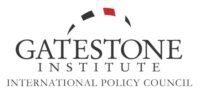Vote fraud disenfranchises Americans and poses a serious threat to both the integrity of and confidence in our electoral system. Opponents of measures to prevent vote fraud contend that its occurrence is either nonexistent or so rare as to be insignificant.
Vote fraud is insidious, committed quietly. And once it’s committed, it cannot be undone. Vote fraud contaminates the pool of votes, and if sufficiently extensive, will affect the outcome of an election. As elections determine who exercises political power, there is a motivation among some bad actors to cheat.
Vote fraud is rarely prosecuted for two main reasons. First, it is virtually impossible to identify the fraud before the damage is done as it is primarily committed through absentee and mail-in balloting; second, prosecuting the crime is expensive and is usually a low priority of prosecutors and local law enforcement more concerned with public safety. However, vote fraud is a crime that strikes at the center of our republic.
The principal weakness in our electoral system that fosters vote fraud is inaccurate voter registration rolls. The federal requirement that counties maintain clean, accurate voter rolls has been ignored over the years and actively resisted under the Obama Department of Justice.
Voter rolls should contain only the names of eligible residents of a jurisdiction, but in far too many counties, voter rolls bulge with the names of the dead, those who have moved away, non-citizens, fictional names and voters registered in more than one place.
A Pew Center on the States study in 2012 revealed that:
- Approximately 24 million—one of every eight—voter registrations in the United States were no longer valid or were significantly inaccurate.
- More than 1.8 million deceased individuals were listed as voters.
- Approximately 2.75 million people had registrations in more than one state.
In nearly 200 counties around the nation, more people are registered to vote than the counties’ population of eligible citizens. Examples abound of non-citizens and convicted felons registered to vote. In Philadelphia, an ACRU lawsuit in 2016 revealed thousands of ineligible people on the voter rolls. A sampling of counties in Virginia also found hundreds of illegal registrations, according to a 2016 study by the Public Interest Legal Foundation.
In-person vote fraud, while far more rare than absentee voting, does happen, as shown by the video sting operations of Project Veritas, in which an impersonator at a polling place in the District of Columbia claimed to be then-Attorney General Eric H. Holder, Jr. and easily obtained a ballot. In other Project Veritas videos political operatives openly discussed how to commit vote fraud in Wisconsin and other states.
The institutional Left has focused on preventing common-sense laws to require voters to prove they are who they claim they are, making the ridiculous and unprovable claim that photo ID laws discriminate against racial minorities and the poor. But, vote fraud is accommodated by other means such as extended voting periods and relaxed standards for acquiring absentee or mail-in ballots and not requiring proof of citizenship when registering to vote.
Several reasonable actions should be adopted to guard against vote fraud:
- enforce federal voter roll maintenance laws;
- require photo ID to vote in person;
- require voter ID and signature verification for absentee ballots;
- limit early voting to no more than a week prior to an election;
- require proof of U.S. citizenship;
- encourage more states to participate in cooperative efforts to identify voters registered in more than one state.
Voting is a privilege of citizenship and only legal votes should be counted. The only way to stop vote fraud is to prevent it!
ACTIVITY
Jason Snead: Don’t Listen To Dem Hysteria — Everyone Can Agree On Election Integrity
No matter what they claim or how loudly they claim it, these voices do not speak for the majority of Americans. As recent polling conducted by Honest Elections Project Action shows beyond all doubt, an overwhelming bipartisan majority of Americans embrace commonsense voting laws that make it easy to vote and hard to cheat.
Election Integrity: One Illegal Vote Can Change an Election
Most people in the media don’t want you to believe that election crimes are committed. They say it is easier to find Bigfoot. But election crimes are not a myth, and The Heritage Foundation has been systematically documenting them for years. When those who deny the crimes occur are forced to confront the data, the response sometimes shifts to “It doesn’t matter anyway.” After all, does it really matter if a single vote is improperly or criminally cast?
Democrat Indicted On 82 Counts Of VOTER FRAUD! [VIDEO]
Democratic County Supervisor, Trey Adkins, has been arrested and is facing 82 charges, mostly involving voter fraud. Adkins is the current Knox District Supervisor for Buchanan County, and faces 82 felony charges.
Foreign Interference? How Non-Citizens Are Voting in American Elections
This month marks the 30th anniversary of President Bill Clinton signing the National Voter Registration Act into law. You probably know the law as "Motor Voter." It is the federal requirement that requires state motor vehicle offices to offer voter registration and the ability to update your address. Sounds convenient? Now, we have data showing one of the side effects of Motor Voter is to put non-citizens onto American voter rolls.
Texas Social Worker Charged With 134 Counts Involving Election Fraud
A social worker in the Mexia State Supported Living Center has been charged with 134 felony counts in an election fraud investigation.
Utah Considers Ranked-Choice Voting Despite Disastrous Record
Despite disastrous outcomes in Alaska, Maine, and multiple U.S. municipalities due to ranked-choice voting, Utah is considering legislation to follow their steps.
Von Spakovsky: Election Fraud Database Tops 1,400 Cases
The Heritage Foundation’s Election Fraud Database now includes 1,412 proven instances of election fraud, and our legal center is monitoring many other ongoing prosecutions. The database, which provides a sampling of recent election fraud cases, demonstrates the vulnerabilities within the electoral process and the need for reforms to secure free and fair elections for the American people.
Developing: Wisconsin Gableman Election Fraud Team Member Comes Forward with Damaging Evidence from 2020 Presidential Election
In a rare show of courage, conviction and commitment, a Team Member from the 2020 Wisconsin Gableman Election Fraud Investigation, came forward this week and is naming names and releasing details involving the election fraud that clearly affected the outcome of the 2020 Presidential Election in Wisconsin.
Von Spakovsky: Election Integrity 2022 in Review: More Improvements Than Damage
As state legislatures begin their 2023 sessions, Americans should know what their states did in 2022 to improve or damage the integrity of the election process.
Von Spakovsky: Key Part of Constitution in Play as Supreme Court Hears Election Case
The Supreme Court heard oral arguments Wednesday in Moore v. Harper, a case that turns on the meaning of a key provision in the Constitution outlining the Framers’ structure for congressional elections.





